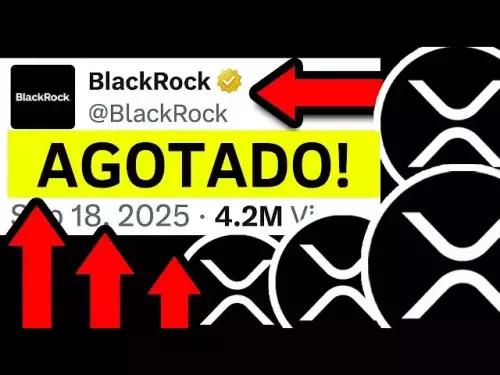-
 bitcoin
bitcoin $115761.354377 USD
-1.37% -
 ethereum
ethereum $4475.268687 USD
-2.95% -
 xrp
xrp $2.997758 USD
-2.97% -
 tether
tether $1.000517 USD
0.02% -
 bnb
bnb $986.306400 USD
-0.03% -
 solana
solana $239.777963 USD
-3.17% -
 usd-coin
usd-coin $0.999885 USD
0.01% -
 dogecoin
dogecoin $0.266431 USD
-5.31% -
 tron
tron $0.344054 USD
-2.27% -
 cardano
cardano $0.895891 USD
-3.84% -
 hyperliquid
hyperliquid $56.136248 USD
-3.59% -
 chainlink
chainlink $23.595739 USD
-4.88% -
 avalanche
avalanche $33.902799 USD
-4.84% -
 ethena-usde
ethena-usde $1.001134 USD
0.02% -
 sui
sui $3.673881 USD
-5.41%
How do blockchain browsers query smart contracts?
Blockchain browsers use APIs to query smart contracts, allowing users to retrieve data or trigger functions, crucial for interacting with dApps.
Mar 31, 2025 at 03:42 am

Understanding Smart Contract Interaction
Blockchain browsers, unlike traditional web browsers, are specialized tools designed to interact with and explore the data on a blockchain network. They allow users to view transactions, block information, and most importantly, interact with smart contracts. This interaction involves querying the contract to retrieve information or trigger specific functions within the contract's code. This process leverages the blockchain's inherent transparency and immutability. Understanding how this querying works is crucial for anyone looking to utilize the full potential of decentralized applications (dApps).
The Role of Application Programming Interfaces (APIs)
The primary mechanism for querying smart contracts through a blockchain browser relies on Application Programming Interfaces (APIs). These APIs act as intermediaries, translating user requests into a format understandable by the blockchain network and then translating the network's response back into a human-readable format displayed on the browser. Different blockchain networks have their own specific APIs. Ethereum, for example, uses the JSON-RPC API. This API allows developers to interact with the Ethereum network programmatically.
Querying Smart Contract Data: A Step-by-Step Guide
Let's outline the general steps involved in querying a smart contract using a blockchain browser:
Identify the Contract Address: Every smart contract deployed on a blockchain has a unique address. This address is essential for interacting with the contract. You'll find this address within the blockchain explorer.
Locate the Contract ABI: The Application Binary Interface (ABI) is a crucial piece of information. It's a JSON file that describes the functions and variables within a smart contract. Without the ABI, the browser can't understand how to interact with the contract. Many blockchain explorers provide this information alongside the contract address.
Use a Blockchain Browser: Many blockchain browsers, such as Etherscan for Ethereum or BscScan for Binance Smart Chain, provide user-friendly interfaces to interact with smart contracts. These interfaces often abstract away the complexities of the underlying APIs.
Select the Desired Function: Once you've loaded the ABI, the browser will display a list of functions available within the smart contract. Select the function you wish to query.
Provide Necessary Parameters (if any): Some functions require input parameters. Enter these parameters as specified by the contract's ABI.
Send the Query: After specifying the function and parameters, send the query to the blockchain network. The browser will then interact with the network via its API.
View the Results: The blockchain browser will display the results returned by the smart contract. This could be a simple value, a more complex data structure, or even a transaction receipt.
Understanding Different Query Types
Smart contract queries can be broadly categorized into two types:
Read-only Queries: These queries retrieve information from the smart contract without modifying its state. They are typically used to fetch data like balances, token ownership, or other stored values. These queries are generally faster and cheaper than write operations.
Write Operations (Transactions): These queries modify the smart contract's state. Examples include transferring tokens, updating contract variables, or triggering specific actions within the contract. These require gas fees to be paid, as they involve a transaction on the blockchain.
Advanced Query Techniques
More sophisticated querying might involve using specialized tools or programming languages. Developers often use programming libraries like Web3.js (for Ethereum) to interact with smart contracts programmatically. This allows for more complex interactions and automation. These libraries provide a higher-level abstraction over the underlying APIs, simplifying development. This approach is common for building dApps that interact with smart contracts.
Security Considerations
When querying smart contracts, always exercise caution. Only interact with verified and reputable contracts. Malicious contracts could attempt to steal funds or compromise your data. Always review the contract's code before interacting with it, if possible. Be wary of contracts with unclear or suspicious functionality.
Troubleshooting Common Issues
Sometimes, querying a smart contract can encounter issues. These can include incorrect ABI, network connectivity problems, insufficient gas, or errors within the contract's code itself. Careful examination of error messages provided by the blockchain browser or API is crucial for identifying and resolving these issues. Thorough testing and debugging are essential for reliable interaction with smart contracts.
The Future of Smart Contract Querying
As blockchain technology continues to evolve, so too will the methods for querying smart contracts. We can expect to see more user-friendly interfaces, improved APIs, and more sophisticated tools for interacting with these powerful pieces of code. The development of more efficient querying methods will be crucial for scaling blockchain applications and enabling wider adoption.
Frequently Asked Questions
Q: What is a blockchain browser?A: A blockchain browser is a specialized tool for exploring and interacting with data on a blockchain network, including smart contracts.
Q: What is an ABI?A: An Application Binary Interface (ABI) is a JSON file describing the functions and variables within a smart contract, allowing interaction with it.
Q: What are read-only queries?A: Read-only queries retrieve data from a smart contract without modifying its state. They are generally faster and cheaper than write operations.
Q: What are write operations?A: Write operations modify the smart contract's state, requiring gas fees as they involve blockchain transactions.
Q: How do I find a smart contract's address?A: The contract address is usually available on the blockchain explorer associated with the network where the contract is deployed.
Q: What happens if I use the wrong ABI?A: Using the wrong ABI will result in errors or unexpected behavior when trying to interact with the smart contract. The browser won't be able to correctly interpret the contract's functions.
Q: Are there security risks involved in querying smart contracts?A: Yes, there are security risks. Always verify the contract's legitimacy and carefully review its code before interacting with it to avoid malicious contracts.
Q: What programming languages can be used for querying smart contracts?A: Various languages can be used, often through libraries like Web3.js (for Ethereum) which interact with blockchain APIs. Solidity is also used for writing smart contracts themselves.
Q: What are gas fees?A: Gas fees are transaction fees paid to miners/validators for processing write operations (transactions) on the blockchain. They are required for write operations on smart contracts.
Disclaimer:info@kdj.com
The information provided is not trading advice. kdj.com does not assume any responsibility for any investments made based on the information provided in this article. Cryptocurrencies are highly volatile and it is highly recommended that you invest with caution after thorough research!
If you believe that the content used on this website infringes your copyright, please contact us immediately (info@kdj.com) and we will delete it promptly.
- Chainlink's Whale Watch: Is a Price Rally Incoming?
- 2025-09-20 16:25:13
- XRP, Stablecoins, and Flare Network: A New DeFi Frontier?
- 2025-09-20 17:05:14
- DIA, Mantle Network, and Price Feeds: A New Era of Trust and Transparency
- 2025-09-20 16:45:15
- Australia, Harris, and India: A Curious Intersection of SMSFs, Political Bets, and Cricket
- 2025-09-20 16:45:15
- Lyno AI: The Crypto Presale Poised to Surge in 2025?
- 2025-09-20 16:50:13
- Lyno AI Presale: Investor Opportunity Heats Up in 2025
- 2025-09-20 17:05:14
Related knowledge
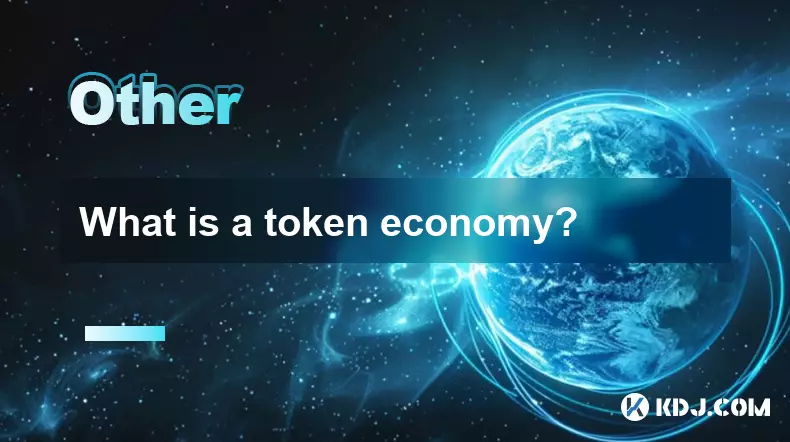
What is a token economy?
Sep 20,2025 at 12:18am
Understanding the Foundations of a Token Economy1. A token economy in the context of cryptocurrency refers to a system where digital tokens are used a...
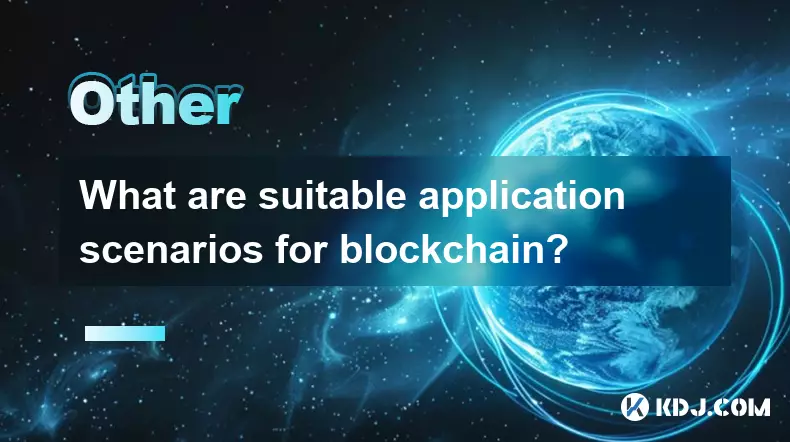
What are suitable application scenarios for blockchain?
Sep 20,2025 at 03:19am
Decentralized Finance (DeFi) Platforms1. Blockchain enables the creation of financial services without centralized intermediaries, allowing users to l...
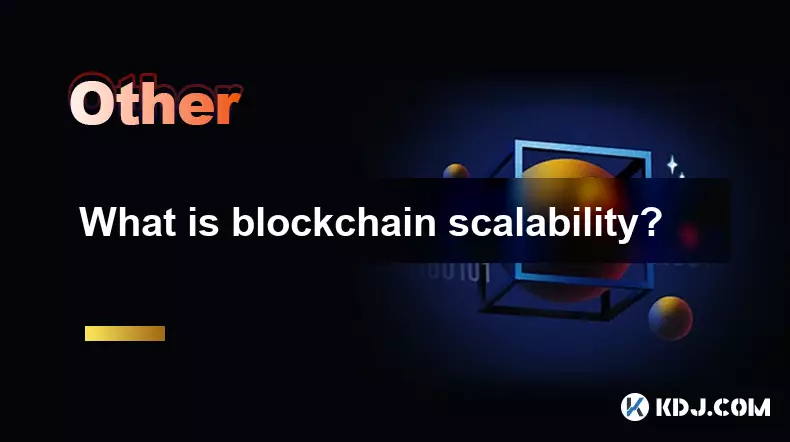
What is blockchain scalability?
Sep 19,2025 at 06:18am
Understanding Blockchain Scalability1. Blockchain scalability refers to a network's ability to handle an increasing number of transactions without com...
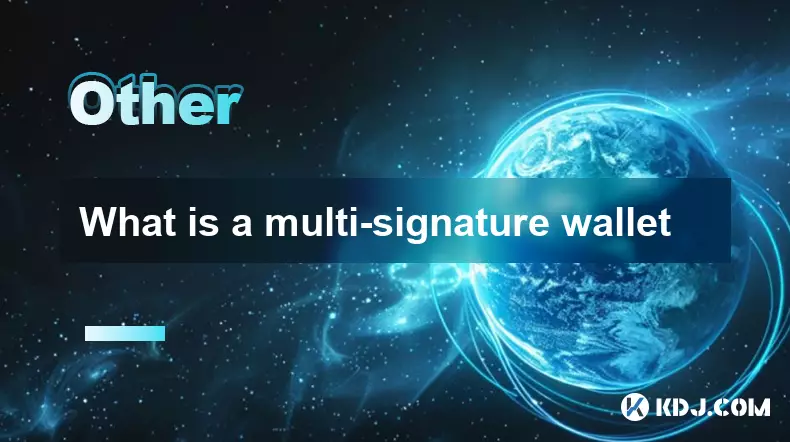
What is a multi-signature wallet
Sep 20,2025 at 07:00am
Understanding Multi-Signature Wallets in Cryptocurrency1. A multi-signature wallet, often referred to as a multisig wallet, is a type of cryptocurrenc...
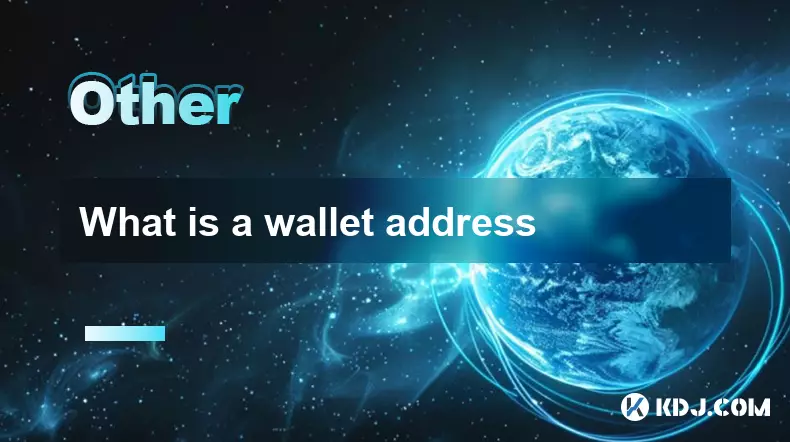
What is a wallet address
Sep 19,2025 at 08:54am
Understanding Wallet Addresses in the Cryptocurrency EcosystemA wallet address is a unique identifier used to send and receive cryptocurrencies across...
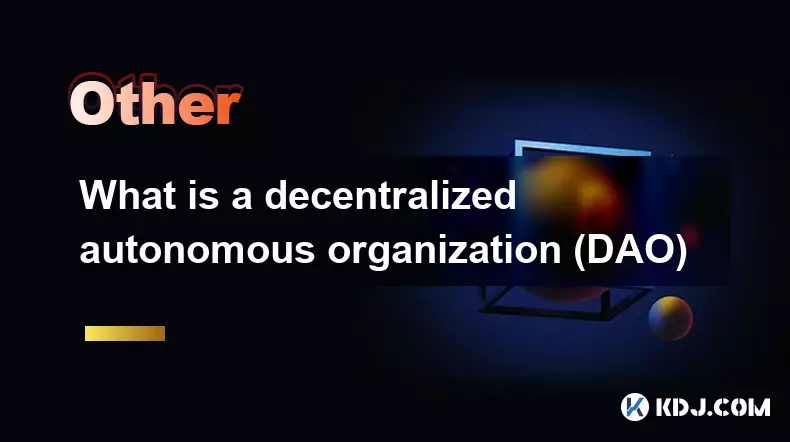
What is a decentralized autonomous organization (DAO)
Sep 19,2025 at 12:00am
Understanding the Structure of a DAO1. A decentralized autonomous organization (DAO) operates without centralized leadership, relying instead on rules...

What is a token economy?
Sep 20,2025 at 12:18am
Understanding the Foundations of a Token Economy1. A token economy in the context of cryptocurrency refers to a system where digital tokens are used a...

What are suitable application scenarios for blockchain?
Sep 20,2025 at 03:19am
Decentralized Finance (DeFi) Platforms1. Blockchain enables the creation of financial services without centralized intermediaries, allowing users to l...

What is blockchain scalability?
Sep 19,2025 at 06:18am
Understanding Blockchain Scalability1. Blockchain scalability refers to a network's ability to handle an increasing number of transactions without com...

What is a multi-signature wallet
Sep 20,2025 at 07:00am
Understanding Multi-Signature Wallets in Cryptocurrency1. A multi-signature wallet, often referred to as a multisig wallet, is a type of cryptocurrenc...

What is a wallet address
Sep 19,2025 at 08:54am
Understanding Wallet Addresses in the Cryptocurrency EcosystemA wallet address is a unique identifier used to send and receive cryptocurrencies across...

What is a decentralized autonomous organization (DAO)
Sep 19,2025 at 12:00am
Understanding the Structure of a DAO1. A decentralized autonomous organization (DAO) operates without centralized leadership, relying instead on rules...
See all articles


























